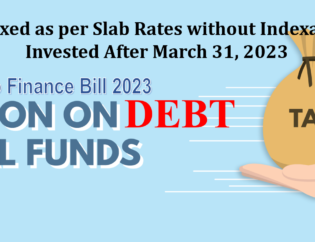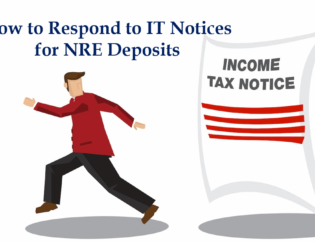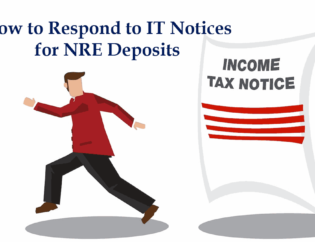A. Income Tax Slab and Rebate revised:
| Particulars | Existing | Proposed |
| Individual, HUF, AOP, BOI | ||
| 0 – 2,50,000 | 0% | 0% |
| 2,50,001–5,00,000 | 10% | 5% |
| 5,00,001–10,00,000 | 20% | 20% |
| 1,000,001–5,000,000 | 30% | 30% |
| 5,000,001-10,000,000 | 30% | 30% + 10% surcharge on tax |
| 10,000,000+ | 30%+15% surcharge on tax | 30%+15% surcharge on tax |
| Rebate | ||
| For Resident Individual | Rebate of Rs. 5,000 for Income up to 500,000. | Rebate of Rs. 2,500 for Income up to 350,000. |
| Company | ||
| Turnover < 50 Cr | 30% | 25% |
| Turnover 50 Cr+ | 30% | 30% |
Effect:
- Effective limit of income on which no tax is to be paid stayed the same as Rs. 300,000.
- Reduction of tax burden of maximum of Rs. 12,500 due to reduction of slab rate (5% of Rs. 250,000).
- Because of surcharge, additional tax burden of 10% of tax on persons earning 50 lakhs to 1 crore.
- While there is reduction of 5% of corporate income tax to smaller companies, tax rate of Partnership Firm/LLP is not changed. So, incorporating companies could provide tax advantage based solely on the income tax rates. However, considering overall tax burden (including Dividend Distribution Tax), companies would still have tax disadvantage.
B. Investment in Real Estate:
- Long term if held for 2+ years (previously 3 years+)
- Deemed Income on property kept in stock after 1 year of completion for builders
Effect:
HUGE POSITIVE for investors due to reduction of holding period for determining long term as well as provision of deemed income on builders. Now, indexation would be available ever after 2 years of holding the property. Also, builders won’t be able to hold the properties of a completed project for a long term and wait for the demand to pick up but would be inclined to sell the same. Otherwise, they would have to include the deemed rental income on the unsold properties in their income tax return and pay tax on the income that is not received.
- Loss from House Property of only Rs. 200,000 can be set off against other income (earlier no such restriction) and additional loss to be carried forward
Effect:
Restricting loss on house property income may reduce the demand for loan against property for investors buying properties where the rental income may not be sufficient to pay for the interest. This could reduce the demand of very high value properties with less utility (high super builtup vs carpet area, luxurious building, etc.) and the price of such properties could also come down.
- If an individual or HUF (not subject to audit) is paying rent of more than Rs 50,000 per month, TDS to be made @ 5%
Effect:
TDS on rent payment by individuals would mainly affect
(a) Salaried employees paying rent of more than Rs. 50,000/month and claiming HRA; and
(b) Businesses run by individuals or HUFs having turnover of less than Rs. 2 crore and paying rent of more than Rs. 50,000/month.
C. Investment in Shares
- Conversion of preference shares into equity shares is to be considered as tax exempt transaction (earlier only conversion of debentures into equity shares was tax exempt).
Effect:
Number of Private Equity or Venture Capital companies may structure deals utilizing Convertible Preference Shares as the conversion into equity shares would be a tax exempt transaction.
- If shares of unlisted companies are transferred at a value less than Fair Market Value (FMV), the capital gain is to be calculated based on FMV.
Effect:
FMV of shares of unlisted companies need to be calculated and purchase/sale transaction of the shares can only be made at that price. This will affect the business of companies that buy physical shares of unlisted companies as they have different prices for buying or selling the shares.
- If shares are acquired after introduction of STT but without paying STT (off market / physical), long term capital gains on sale of those shares would be TAXABLE.
Effect:
Any investor who acquired equity shares long ago but do not remember the date of acquisition would need to be careful in entering the date of acquisition now. He won’t be able to enter any date before 1 year and claim exemption. If he enters the date after October 1, 2004 (after introduction of STT), he would need to prove that STT has been paid. Else, the gain would not be exempt.
It would be recommended to first confirm whether the shares were bought before October 1, 2004 and if yes, enter that date. Otherwise, it is advisable to obtain the contract notes verifying that the STT was paid at the time of acquisition. If not, it could be better to sell the shares before March 31, 2017.
- Dividend income in excess of Rs 10 lakhs received from domestic companies would be taxable for all tax payers (earlier taxable for individuals and HUFs only) except domestic companies and some exempt institutions etc.
Effect:
Any person (except domestic company and exempt institution) would need to pay tax on the dividend income if it is more than Rs. 10,00,000. This would materially affect Trust (in addition to other assesses like Partnerships, Association of Persons, Body of Individual, etc.)
It would be recommended to revisit the Trust deed as well as the portfolio and plan to reduce the tax burden. If shares are held in the name of other persons, a revisit to the portfolio and tax planning will help in a long way.
D. Investment in Bonds / Debt Mutual Fund / Gold:
- There is no change in the 3 year holding period requirement related to investments in bonds, debt mutual funds or gold for long term capital gain calculation.
Effect:
By not making any changes in the holding period of assets other than immovable properties, holding of 3 years in such assets would be required to consider the gain as long term capital gain and for taking the benefit of indexation as well as for claiming exemption for investment in bonds or residential property. This is negative for investors of bonds, debt mutual fund, gold or any other property except immovable properties as they would have to wait for 1 more year for indexation.
E. Calculation of Capital Gain
- Base year changed from 1981 to 2001 for calculating indexed cost of acquisition
- Investment in bonds notified by government (in addition to NHAI and REC) to be allowed for saving long term capital gain u/s. 54EC
Effect:
- EXTREMELY POSITIVE for Long term Investors because of the change in base year from 1981 to 2001. It means that any appreciation more than inflation in any long term asset between 1981 and 2001 would be TAX FREE.
- There will be more options to choose from for investment to save tax on long term capital gain. However, I think the rate of interest would be the same.
It would be recommended to wait for 1-2 months for anyone planning to sell a capital asset that was acquired before 2001 and sell the same in next financial year (April 2017 or later) to get the higher indexation. This is assuming that the appreciation in the value of an asset is more than the indexed cost until 2001.
Statistics (for no. 6 and no. 7):
Out of the 125 crore Indians, only 3.7 crore individuals filed tax returns for 2015-16. Out of these, 99 lakh showed income below Rs 2.5 lakhs (exemption limit), 1.95 crore reported income of 2.5-5 lakhs and only 76 lakhs reported income above Rs. 5 lakhs, which included 56 lakhs salaried individuals. Furthermore, only 1.72 lakhs showed income more than 50 lakhs.
In contract, in the last five years, more than 1.25 crore cars have been sold, and in the year 2015, number of Indian citizens who flew abroad, either for business or tourism, is 2 crores.
Also, deposits between Rs 2 lakhs and Rs 80 lakh were made in about 1.09 crore accounts with an average deposit size of Rs 5.03 lakhs and deposits of more than Rs 80 lakhs were made in 1.48 lakh accounts with average deposit size of Rs 3.31 crores during November 8 to December 30.
Around 4.2 crore persons are employed in the organized sector but only 1.74 crore of them have filed a tax return for salary income. Similarly, only 1.81 crore of the 5.6 crore informal sector individual enterprises and firms have filed returns.
Out of 13.94 lakh companies (who is mandatorily required to file tax returns), only 5.97 lakh have filed their returns. Out of them, 2.76 lakh companies have shown losses or zero income and 2.85 lakh companies have shown profit before tax of less than Rs 1 crore. Only 36,448 companies have reported profit of more than 1 crore.
F. Transition from Cash To Digital economy
- No payment for business expense in cash of more than 10,000 per day per person is to be made (earlier limit of Rs. 20,000). If any capital expense incurred in cash over the said limit would not be eligible for depreciation.
Effect:
The statistics show that the Tax evasion is rampant in the country and is especially high among the non-salaried class. This is due to transactions in cash and existence of cash economy. By restricting payment in cash of Rs. 10,000 or more for business related expense to one person per day or for buying a capital asset from one person, the cost of cash transactions in business is being increased. While some may find innovative ways to deal in cash and evade taxes, most of the business owners would want to take demonetization as an opportunity to regularize their business operations as well as accounts. I expect that the business owners would reduce the cash payment for incurring business expense or buying capital asset.
- No person is permitted to receive Rs. 300,000 or more in aggregate from a person (i) in a day or (ii) for single transaction (multiple days) or (iii) in one or more transactions relating to one event or occasion. If received, receiver to pay penalty of the total amount received.
Effect:
The budget prohibits transaction of Rs. 3,00,000 or more in aggregate in cash and imposed 100% penalty on the receiver. This applies to any one or more transactions, whether revenue or capital in nature, whether for business or personal use, whether as a loan or a gift, whether from a relative or a non-relativein cash. Earlier only the payer was penalized by non-allowance of expense and cash was being used for acquiring capital asset as well as personal dealings. Now, person receiving cash would be careful and may ask for cheque or electronic payment.
G. Tax Return Filing, Revision and Assessment
- Timeline for Filing, revising Tax return as well as scrutiny assessment is proposed to be reduced and/or streamlined.
- The time limit for completing scrutiny assessment from the end of the relevant financial year is reduced from currently 21 months to 18 months for assessment year 2018-19 and to 12 months for assessment year 2019-20. It was 24 months a year ago.
- The time limit to file revised income tax return, from the end of financial year in which the income is earned, is reduced from current 24 months to 12 months from A.Y. 2018-19.
Effect:
Reducing time limit for completing scrutiny assessments would increase efficiency, speed up assessment proceedings, and reduce time for processing returns. Reducing time limit for filing revised income tax return would incentivize tax payers to prepare the return more accurately. It will also make them review their returns, find the mistakes and revise the returns very quickly (before they start preparing for next years returns).
- A simple one- page Income Tax Return form for the category of individuals having taxable income upto Rs 5 lakhs other than business income.
- A late tax return filing fee for filing return after due date is introduced as under:
|
Return filed after Due date (e.g. July/Sept) |
Fees |
| Income upto Rs. 5,00,000 | Rs. 1,000 |
| Income 5,00,000+ and ITR filed by December 31 | Rs. 5,000 |
| Any other case | Rs. 10,000 |
Effect:
The non-compliance with Indian tax laws is rampant. While Income Tax department has leapfrogged from 15-20 months to 15-20 days for processing returns and crediting the refunds, the taxpayers have hardly taken a step forward for compliance. By introducing a simple one page income tax return for majority of tax return filers (income less than 5L) and introducing penalties for late or non-filers, the Income Tax Department is trying to encourage taxpayers to file their tax returns and that too on time.
H. Transfer without adequate consideration
- Any transfer of an asset (including immovable property) without consideration or inadequate consideration is proposed to be taxed to all recipients (including Company, Firm, Trust, Institution, etc.) Currently, it only applies to Individual and HUF.
Effect:
Fair value needs to be determined for any transfer of property (especially immovable property) and any transfer below the fair value would be considered as income for all types of receipts. This may affect transferring property at lower than the FMV to/by partnership firms, companies, trusts, etc. This provision will affect transfer of shares / other assets among group companies as a part of corporate restructuring as well as transfer of assets to or by family trusts.









Dear Sir,
I’ve withdraw more than 10lacs from my NRE Account in 2014 and did spending on so many thing. now I got an inquiry from incometax on Ecx 001 that says you have done cash transactions more than 10lacs in a month.
do I need to answer, as I hold NRE account and I understand I have the right to spend money the way I want. kindly advise
Yes, you are free to use / spend the money from NRE account. So don’t worry, just reply accordingly. For precaution, you may want to consult your CA. Thanks.
Truly, this is the smart way of investing. Thank you for your the in depth analysis.
Dear Mr. Jigar Patel:
At the outset, let me thank you very much for your blog – it is a tremendous resource.
I am a US citizen, with an OCI, and working/residing in India for the last 5 years. I purchased several shares while I was in the US. One of the companies was ARMH (ARM Holdings), which I purchased in 2004, and which was acquired by a private equity firm SoftBank in 2016. Therefore this was treated as a sale of shares in my US brokerage account. I was advised by H&R Block (India) to pay long term capital gains tax at the rate of 20% on my India Tax return. This rate was arrived at because of the fact that these are unlisted on the Indian Stock Exchange.
Was this the correct thing to do? I have filed for an extension on my 2016 US Federal Taxes. Could I have simply filed my US returns, and since I would have been eligible to take advantage of the threshold on the Foreign Income Exclusion Credit?
Thanks in advance for your advise.
Regards,
Ravi
1. Yes, you will have to pay tax on the Long term capital gain on sale of ARMH shares as you are an Ordinary Resident of India. You may be able to claim indexation.
2. Yes, as you have lived in India for an entire tax year, you are eligible for foreign income exclusion credit in USA. However, this credit is only for your salary income. If you have any other income e.g. rent, interest, you may have to pay tax in the USA. However, you may claim the foreign tax credit for the tax you pay in India.
3. For LTCG on ARMH, you would include the gain in your US tax return and pay tax, if any, after standard deduction and personal exemption. IF you had to pay tax on the sale of shares, you may be able to claim the relief of tax in your Indian tax return due to DTAA – Double Tax Avoidance Agreement between India and USA. Thanks.
Dear Mr. Jigar Patel:
At the outset, let me thank you very much for your blog – it is a tremendous resource.
I am a US citizen, with an OCI, and working/residing in India for the last 5 years. I purchased several shares while I was in the US. One of the companies was ARMH (ARM Holdings), which I purchased in 2004, and which was acquired by a private equity firm SoftBank in 2016. Therefore this was treated as a sale of shares in my US brokerage account. I was advised by H&R Block (India) to pay long term capital gains tax at the rate of 20% on my India Tax return. This rate was arrived at because of the fact that these are unlisted on the Indian Stock Exchange.
Was this the correct thing to do? I have filed for an extension on my 2016 US Federal Taxes. Could I have simply filed my US returns, and since I would have been eligible to take advantage of the threshold on the Foreign Income Exclusion Credit?
Thanks in advance for your advise.
Regards,
Ravi
1. Yes. You would need to pay tax on capital gain on sale of shares in India.
2. As the sale is outside India, in USA, your primary liability to pay tax is in USA. If you have paid capital gain on sale of shares in USA, you would be allowed to tax credit on the same in your Indian return.
3. Foreign income exclusion is for salary income outside USA and may not apply in your case. I would recommend filing your US return and claim the tax credit in your Indian tax return under DTAA. Thanks.